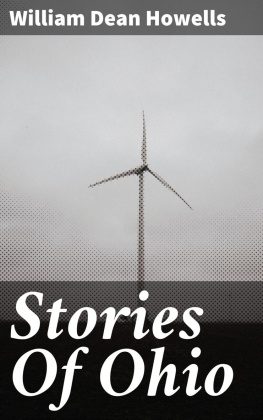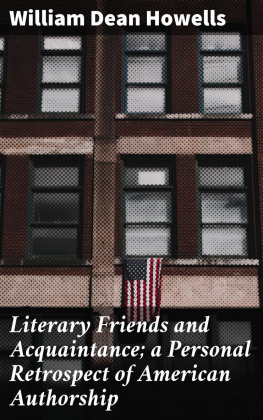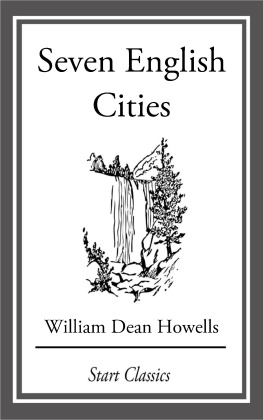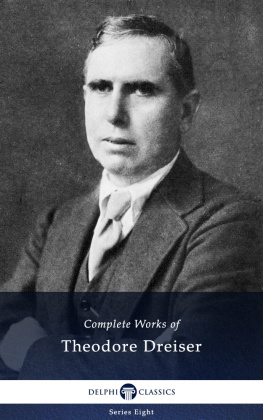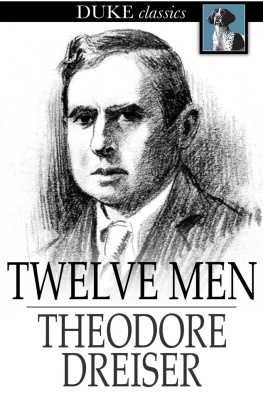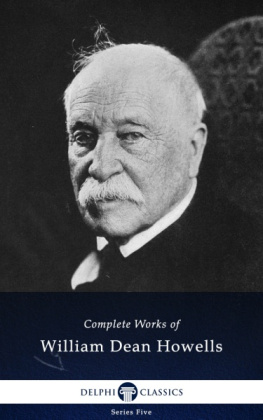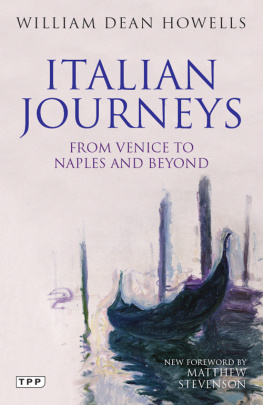First published 1991 by Westview Press
Published 2019 by Routledge
52 Vanderbilt Avenue, New York, NY 10017
2 Park Square, Milton Park, Abingdon, Oxon OX14 4RN
Routledge is an imprint of the Taylor & Francis Group, an informa business
Copyright 1991 by Sender Garlin
All rights reserved. No part of this book may be reprinted or reproduced or utilised in any form or by any electronic, mechanical, or other means, now known or hereafter invented, including photocopying and recording, or in any information storage or retrieval system, without permission in writing from the publishers.
Notice:
Product or corporate names may be trademarks or registered trademarks, and are used only for identification and explanation without intent to infringe.
Library of Congress Cataloging-in-Publication Data
Garlin, Sender.
Three American radicals / Sender Garlin; foreword by Howard Zinn.
p. cm.
Reprint of three works originally published by American Institute for Marxist Studies, New York; the first work published in 1976, the second in 1977, and the third in 1979. Originally published in series: Occasional papersAmerican Institute for Marxist Studies.
Includes bibliographical references and index.
Contents: John Swinton: crusading editor Charles P. Steinmetz:
scientist and socialist William Dean Howells and the Haymarket Era.
ISBN 0-8133-1256-6
1. RadicalsUnited StatesBiography. 2. Swinton, John, 18291901. 3. Steinmetz, Charles Proteus, 18651923. 4. Howells, William Dean, 18371920. 5. RadicalismUnited States History19th century. I. Title
HN90.R3G27 1991
303.48'4dc20 91-8301
CIP
ISBN 13: 978-0-367-27397-2 (hbk)
In the fall of 1989 I traveled to Boulder, Colorado, to give a talk at the University of Colorado. I knew that one of the chief organizers of my talk was a man named Sender Garlin, a longtime radical journalist and pamphleteer. But I was not prepared for the excitement of my encounter with him.
We met for lunch at the faculty dining room, and it lasted two hours, but it could have gone on for six, so animated was the conversation, so high the energy, so full of questions was I, so full of the history of this century was Sender Garlin. He kept saying, "It's my turn to question you. Equal time, you know." But I knew that we were not equals in what we had to say, and that I would have a public rostrum that evening from which to express my ideas, so I made the most of those two hours.
I am a historian, and Sender, born in the early part of the twentieth century, has lived through some of the most exciting historical moments of our time. He covered the Moscow purge trials of the 1930s for three left-wing newspapers, the only Western correspondent to be present at all of those bizarre proceedings, in which Stalin methodically disposed of his former fellow revolutionaries. In this country, Sender reported on a different kind of lynching, the trial of the Scottsboro Boys, nine black youths falsely accused of rape in Alabama during the Depression years, and sentenced to death.
Sender grew up in a working-class environment in Vermont and upstate New York. His father was a self-employed baker who, Sender says, "enlisted the services of my mother and all seven children." Reading the Appeal to Reason and the writings of Upton Sinclair, Sender at thirteen considered himself a Socialist: "In later years, it was Karl Marx who recruited me with his analysis of this cruel, unjust society. No one has refuted his fundamental critique." He studied with Scott Nearing and other blacklisted academics at the Rand School of Social Science, and spent several years in college and law school. He has no degrees, but his education in the world was first-class. (Apparently he found college libraries more enlightening than classroom exercises.)
Covering the bitter labor struggles of the twenties and thirtiesthe textile strike in Gastonia, North Carolina; the maritime and farm-workers' strikes in California (as editor of the Western Worker )affected him deeply, as the Paterson silk-workers' strike moved another journalist, John Reed, and as the Kentucky miners' struggles radicalized Theodore Dreiser. Sender could never be the detached professional journalist, above the battle.
As a reporter he interviewed Dreiser, and such other diverse figures as Clarence Darrow; Emma Goldman; Lucy Parsons, widow of the Haymarket martyr Albert Parsons; Huey Long; Nadezhda Krupskaya, widow of V. I. Lenin; and Olga Knipper-Chekhova, Moscow Art Theatre star and widow of the great Russian writer Anton Chekhov. In the early thirties, Sender helped found the John Reed Club and was a founding editor of Partisan Review.
He has always directed his writings, with their satirical barbs, against the system: the exploitation, the racism, and the militaristic nationalism that have plagued this century, whether in the extreme form of Fascism or in more disguised forms.
The essays in this book reflect his interest in history, his fascination with personalities, and his deep commitment to a new world of peace and justice. All of his three American radicals were, in different ways and to different degrees, involved in the struggle for a better society. These essays are not only well written, but the product of impressive research. I learned a good deal from reading them.
Very few Americans, even professional historians, know of John Swinton. This is a sad commentary on our historical education: it tells us more of presidents and generals than we need to know, and not enough of radical writers, gadflies, independent journalists. Swinton belongs in all those neglected categories, and Sender Garlin makes an important contribution by bringing him onstage and telling us about his remarkable journey through the swirling events of the second half of the nineteenth century. I knew only a little about Swinton. I vaguely remembered, from reading Marx's letters, that he and Marx had met, but I did not know that he had spent so much time with the journalistic establishment (the New York Times, Sun, and Tribune ) or that he was such a pioneer on the issue of women's rights.
More of us have heard of Charles Steinmetz, but only as a gifted electrical engineer who for many years worked for General Electric. But few know of his involvement in the Socialist Party, an aspect of his life about which GE could not have been overjoyed. (I particularly like his suggestion of a four-hour day and his proposal for Social Securityin 1915!)
William Dean Howells is one of the greatest figures of modern American literature. But most of us know little of his engagement In the political battles of his time, from his anguish over the Haymarket Affair, to his criticism of the Spanish-American War, to his role in the founding of the National Association for the Advancement of Colored People. Sender Garlin recalls the drama of Howells's life, in which he crossed paths with an extraordinary collection of individuals, among them Mark Twain, Clarence Darrow, Eugene V. Debs, Eleanor Marx, George Bernard Shaw, Paul Lawrence Dunbar, and William Morris.


